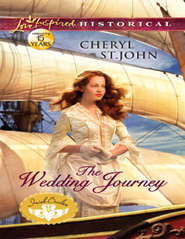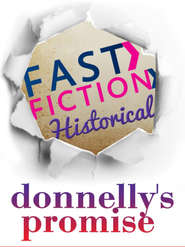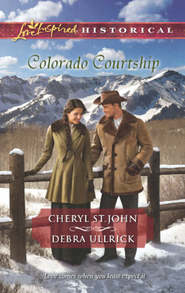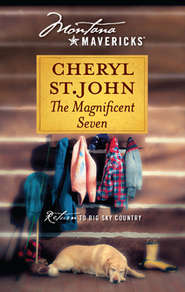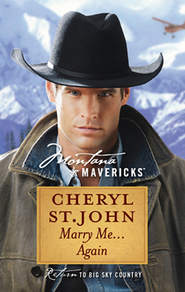По всем вопросам обращайтесь на: info@litportal.ru
(©) 2003-2025.
✖
Child of Her Heart
Автор
Год написания книги
2019
Настройки чтения
Размер шрифта
Высота строк
Поля
“But I like that one the best.”
“I do, too.” He turned to the artist. “Can I pay for that one and when it’s ready have it shipped to my home address?”
“No problem,” the man replied. He pushed an intercom button. “My wife’ll come down and take care of the details.”
“Now let’s find one for your grandma,” he said to the boys, and they began a new search.
Meredith pushed Anna’s stroller back outside and admired the metal sculptures, wondering if she’d regret not buying one today. It would be fun to have one in her yard as a remembrance of the ocean breezes.
She decided on a piece with six long, delicate, gently curving arms, the wind cups fashioned like shells and a counterweight on the opposite side of the wheel. As the wind caught it, the arms spun the shells in a whirl of shining metal. Pleased with her choice, she went inside and paid for her purchase.
“It’s only a few dollars more to ship two together,” the short, friendly faced wife of the artist said. “Unless you need priority or express shipping?”
Meredith blinked, turning the words over in her mind. “I only want one, thanks.”
“Your husband is having one shipped home, too, dear. Oh my, you haven’t disagreed on which one to get, have you?”
The woman’s assumption came clearly into focus. “I, uh, we’re not—”
Justin came to her rescue. “No, we want both of ours sent to the same address. I don’t need priority delivery, do you?”
She shook her head. “No.”
“We’ll save a few bucks on shipping this way,” he said to her. “I’ll bring yours over when they arrive. That okay?”
She nodded. “Sure.”
Purchases and delivery confirmed, they walked outside.
Meredith didn’t know what to say. The woman had assumed they were married.
“It’s okay,” Justin said to her. “It’s perfectly natural for a casual observer to assume we’re a couple, since we’re shopping and sight-seeing as what must look like a family. I’m sorry if you’re embarrassed.”
“I’m not embarrassed,” she replied, almost defensively.
“Then there’s no problem.”
“None whatsoever.”
“Then let’s continue our holiday.”
He walked forward and she caught up to him.
Their next tour was of a boatyard. The owners built reproductions of rowboats and fishing boats dating back to the 1800s, and all the boats were available to rent and take out on the water.
“I’ll try this one,” Justin said, pointing to a particular rowboat bobbing on the calm inlet. “Who’s coming with me?”
Jonah and Lamond ran forward, but Mauli hung back. She glanced at Meredith and shuddered. “I don’t think I want to be on the ocean in a boat that small with those two kids jumping around. You go ahead, though. I’ll stay here with Anna.”
Meredith shook her head. Anna was awake and fussing. “I’ll just sit here with you, thanks.” She called across the distance, “We’ll stay here. Have fun.”
He and the boys scrambled into the boat and Justin rowed out in the water.
Meredith and Mauli bought drinks and sat at a round table with an umbrella. Gulls swooped nearby, pecked at the ground then flew off.
Meredith placed a receiving blanket over her shoulder, took Anna from her stroller and opened her nursing bra to place the baby at her breast. “So you’re a student?”
Mauli nodded. “I’m in my third year.”
“What’s your major?”
“Ethnic studies. African-American history last year.”
Meredith’s interest picked up. “Do you want to teach?”
“Teach or counsel. Kids probably.”
“Big surprise.”
Mauli smiled. “Yeah, I like kids.” She sipped her soft drink and glanced at Meredith. “You haven’t asked. My dad is black and my mother is white and Hawaiian. In Hawaiian, my name means dark-skinned.”
“I wouldn’t have asked.”
“You’ve heard a lot of questions about Anna, haven’t you?”
Meredith nodded.
Mauli set her paper cup on the table. “I’ve heard them all. And so have my parents.”
“Some of them are so…hurtful.”
“Yes,” Mauli agreed. “But some are just thoughtlessly curious.”
“I guess so.”
“People get uncomfortable when they can’t easily categorize you.”
Meredith thought over the girl’s remarks.
“There are five standard racial pigeonholes,” she said, holding up one hand. “If you don’t fit, you stand out. Probably the questions I heard the most while growing up were ‘Is that your dad?’, ‘Is that your mom?’ and ‘Are you adopted?’”
Meredith imagined what it must feel like for a child to hear those questions. “Last night a woman asked me where this baby came from,” she told Mauli, revealing something she’d never thought she would have shared. “The question makes it seem as though Anna is an alien or something.”
Saying the words aloud made her head buzz for a few seconds, but it was liberating to get the frustration off her chest.
Mauli studied the shop fronts and the few passing tourists. “Four-point-five million kids under eighteen in this country are multiracial,” she said matter-of-factly, impressing Meredith with her knowledge. “In some areas one out of six babies born is of two or more racial heritages. Multiracial youth is one of the fastest growing segments of our population.”
“I guess numbers don’t necessarily mean acceptance, do they?” Meredith asked.






